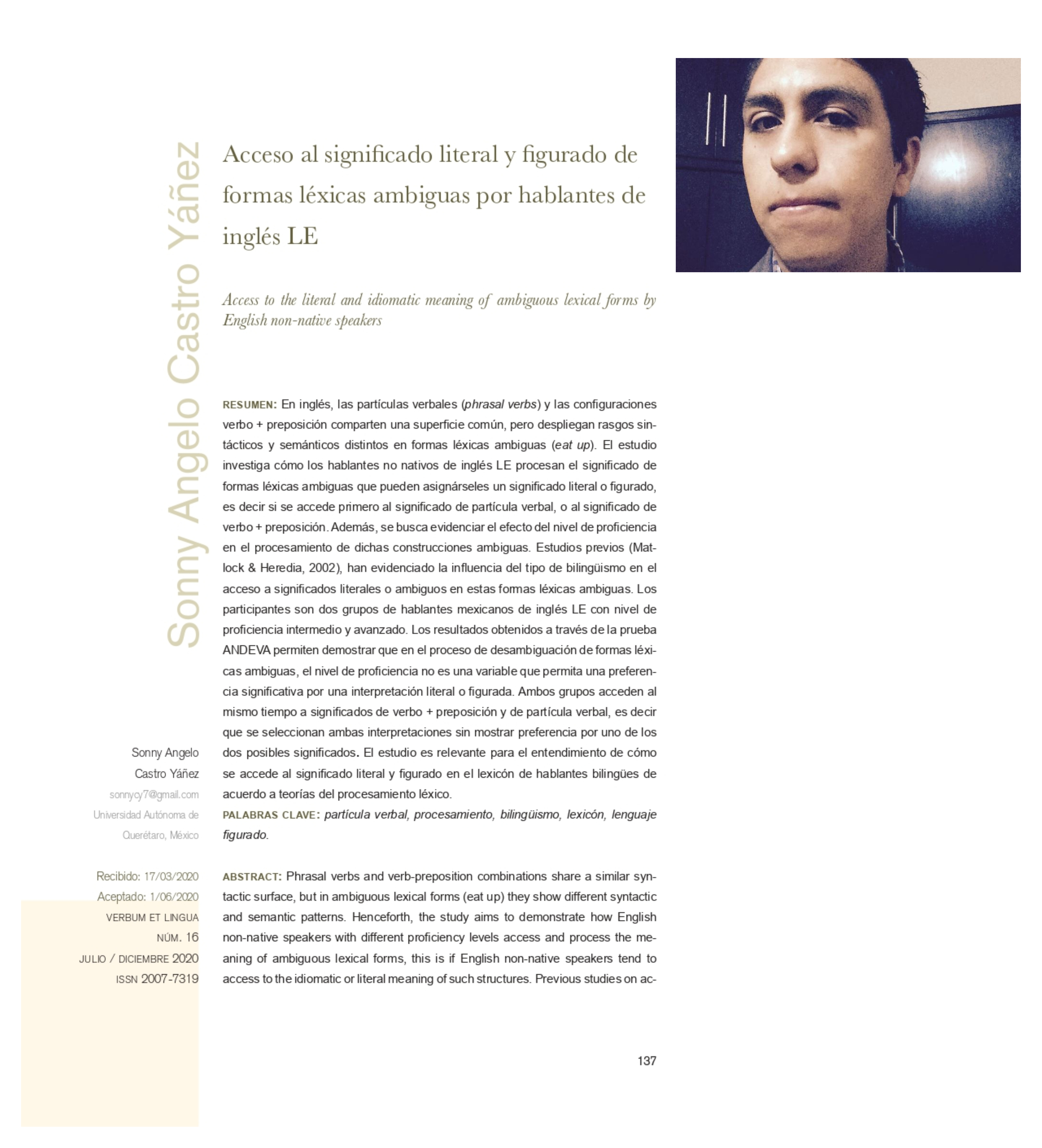Access to the literal and idiomatic meaning of ambiguous lexical forms by English non-native speakers
DOI:
https://doi.org/10.32870/vel.vi16.155Keywords:
Phrasal verb, Processing, Bilingualism, Lexicon, Figurative languageAbstract
Phrasal verbs and verb-preposition combinations share a similar syntactic surface, but in ambiguous lexical forms (eat up) they show different syntactic and semantic patterns. Henceforth, the study aims to demonstrate how English non-native speakers with different proficiency levels access and process the meaning of ambiguous lexical forms, this is if English non-native speakers tend to access to the idiomatic or literal meaning of such structures. Previous studies on access to ambiguous lexical forms (Matlock & Heredia, 2002) have provided evidence for the influence of the type of bilingualism in the access of literal and figurative meanings in these constructions. For the study, an online task in PsychoPy, adapted from Matlock & Heredia (2002), was used. 22 students from participated in the study, 11 of the participants had a high proficiency language level while the other 11 had an intermediate language level. The ANOVA results from the task indicated that in the process of interpreting ambiguous structures, the level of proficiency in the foreign language is not a variable that has an effect in the choice of a literal or figurative meaning. Both groups access at the same time to literal and figurative meanings, i.e., non-native speakers show a preference for both possible interpretations, although advanced speakers process better figurative meanings whilst intermediate speakers process better literal meanings. Results are discussed with regard to the organization of the lexicon in English non-native speakers.
Downloads
Metrics







